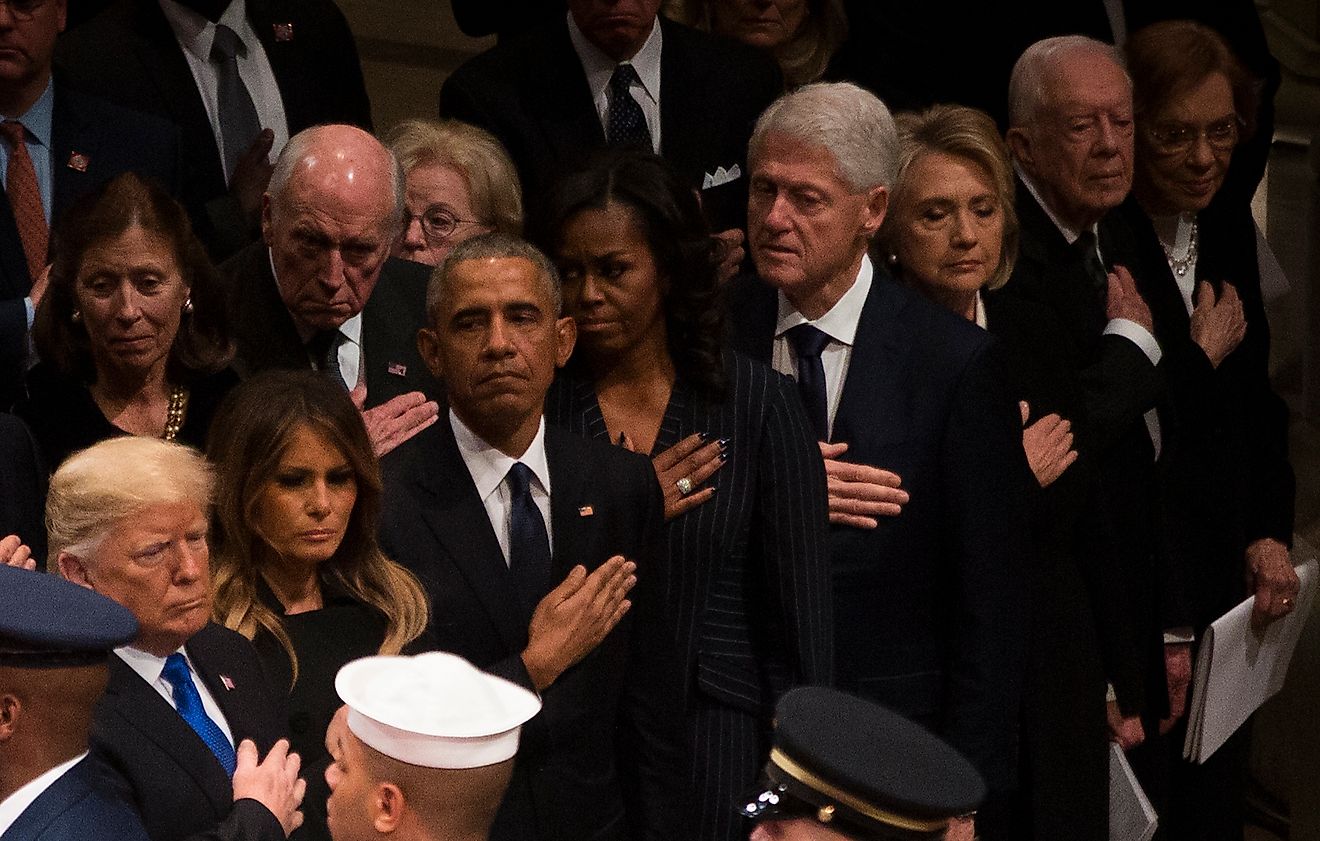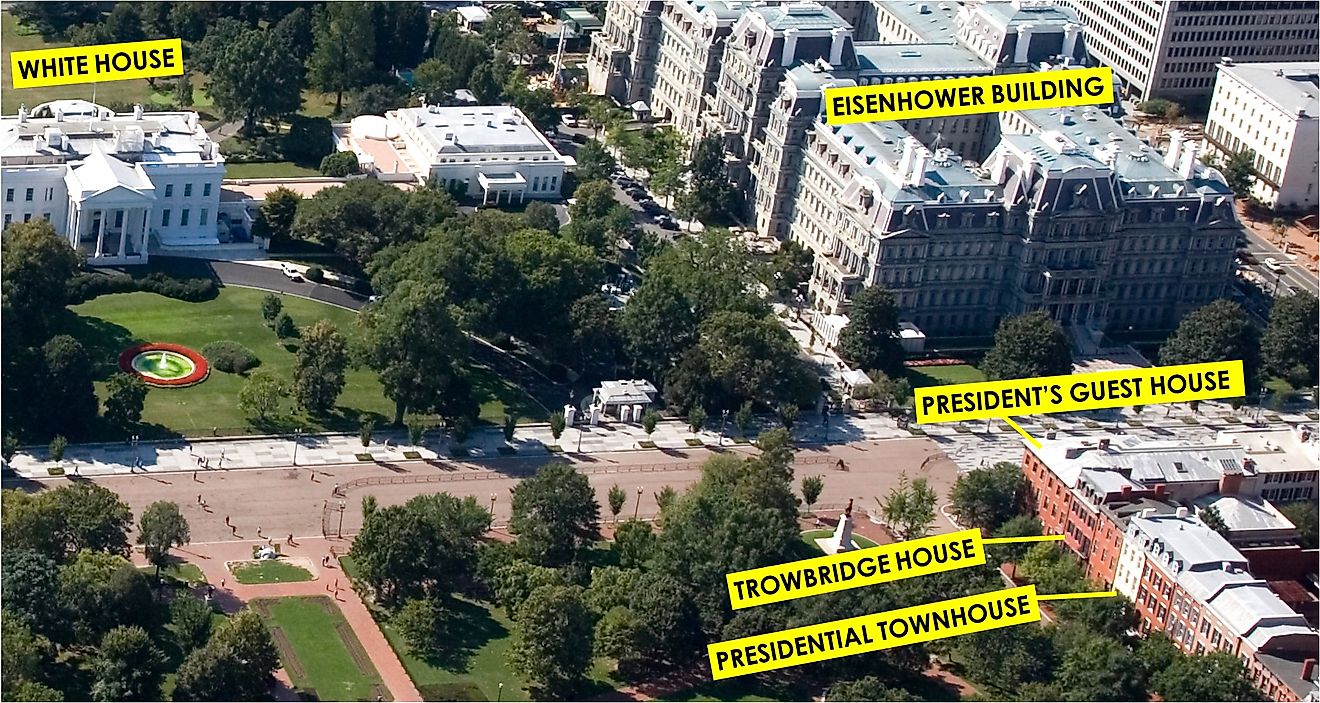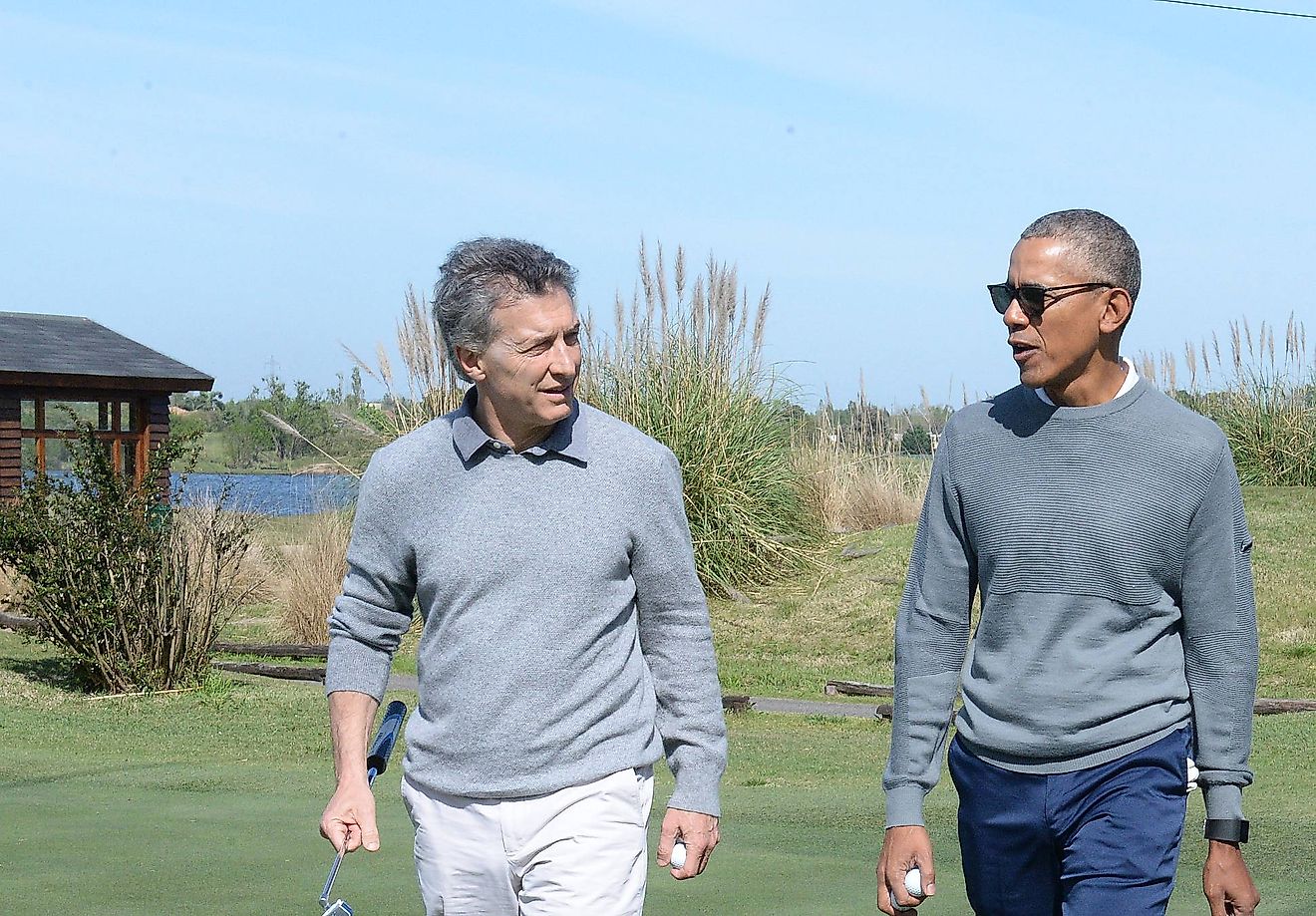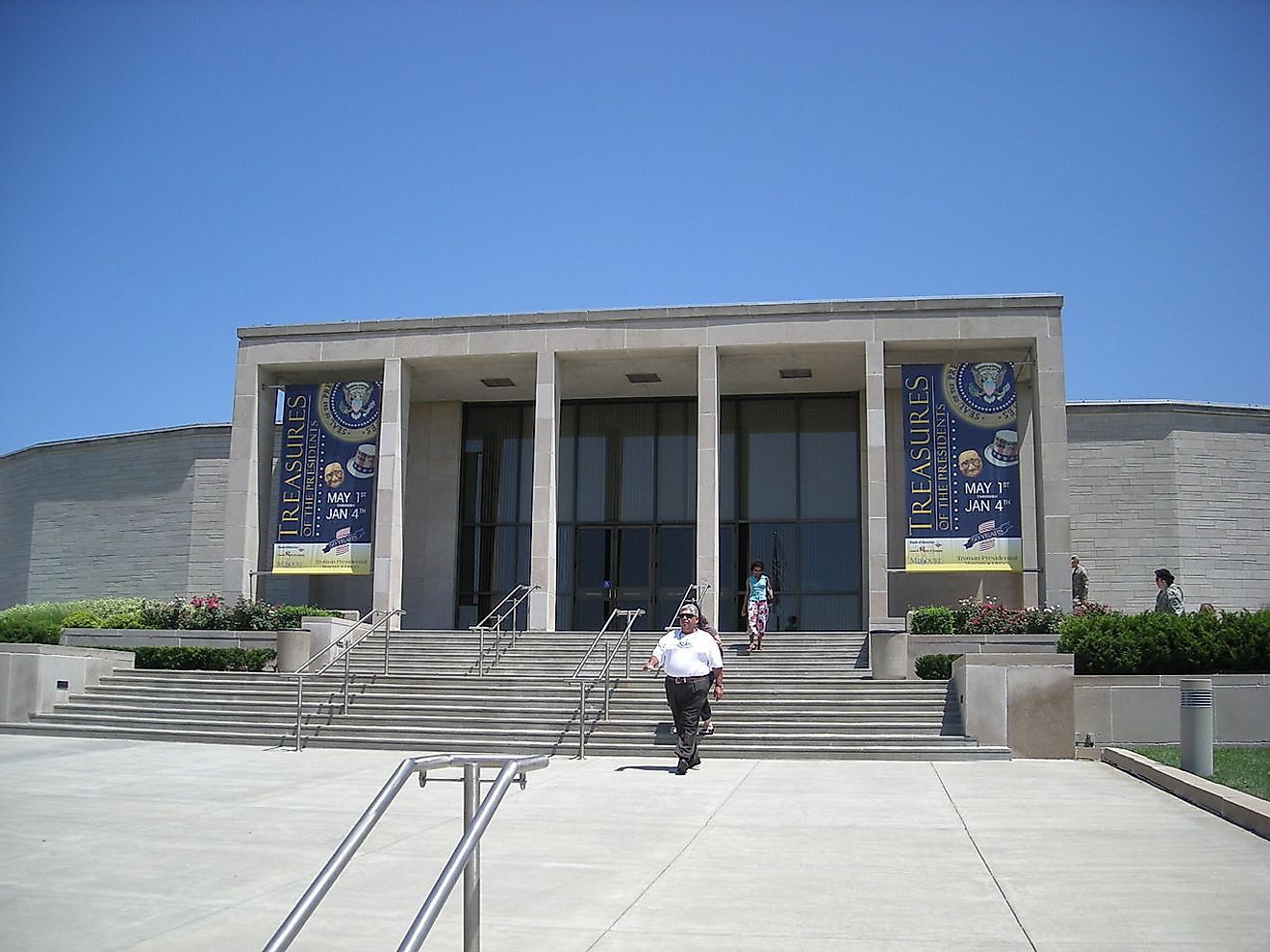Does the President Continue Recieving Pay When He is Out of Office
10 Rules That Former Presidents Have To Follow After Leaving Office

- Former presidents are not allowed to drive on public roads
- The government can provide former presidents with the lifetime security detail
- Former presidents can choose to be buried in the area of their Presidential Library
Once their term is over, former presidents' life is far from going back to the ordinary everyday life of paying the bills, stocking up the groceries, or catching a movie in a local cinema. Yes, former presidents can do all of those things, but there are certain rules and protocols they need to follow. Some of them were established in 1958 following the passing of the Former Presidents Act, and some of them are public duties former presidents need to fulfill as they are still public figures holding civic duties. Here are ten rules and guidelines former presidents need to follow:
10. Following the No-Drive rule
Probably the most frustrating rule former presidents must follow is staying away from public roads. This rule became public when George H. Bush revealed to Jay Leno in an interview that he had not driven on a public road in more than 25 years. Lyndon Johnson was the last president to drive on a public road: the assassination of John F. Kennedy was a turning point in working out this security measure. Still, former presidents often enjoy driving in secluded and private areas. Ronald Reagan, for example, is famous for driving his favorite Jeep in the area of his private ranch.
9. Staying at the Presidential Townhouse

When visiting Washington DC, former presidents are not obliged to stay at the Presidential Townhouse but are often encouraged to do so because the house already has security protocols worked out. In fact, the basement of the house is designed especially for security detail. The presidential townhouse is only a minute's walk away from the White House. It was Richard Nixon who had it built to provide a stay for former presidents. George H.W. Bush used it most often, even though his wife Barbara did not like the house at all because of its spartan interior design. The house was extensively renovated when his son, George H. Bush was president.
8. Having funding for the transition period
Once they leave office, they have a 6-month transition period during which they need to establish a new office and staff. These are considered business affairs and government matters, so former presidents receive funding to cover the costs. Unlike other financial perks, this one is provided even for those former presidents who resigned from the office.
7. Staying up to date with national security briefings
Even though they're no longer presidents, it is a tradition to consider former presidents as sources of wisdom and useful political advice. Because of this, former presidents regularly receive national security briefings to stay up to date with current security issues. If needed, the Office of the President will ask for their advice, or they can reach out to the sitting president and offer one.
6. Travelling for diplomatic purposes

One of the duties former presidents have to uphold after their time in the office is traveling. Former presidents travel as goodwill ambassadors of the nation, and they're upholding their duties in diplomatic relations between countries. For that purpose, they have an annual budget of $1 million they can use. Their spouses have a $500,00 yearly traveling budget. Former presidents also have the right to diplomatic passports meaning that they can avoid all the hassle of obtaining visas for some countries.
5. Establishing a Presidential Library

Establishing a Presidential Library is encouraged by the Presidential Libraries Act, passed in 1955. Because their actions and work in the office are considered a public service, former presidents can establish a library of presidential papers, documents and any other written material considered important for the nation's history. Libraries are usually open to the public, and the official opening ceremony can serve the purpose of a public relations event for the former president. Some of the former presidents choose to be buried on the premises.
4. Having a permanent Secret Service Detail
Former presidents receive a permanent Secret Service. They have the right to choose to what extent they want to be protected, but it is highly uncommon for the former president to refuse this type of protection. To this date, Richard Nixon is the only former president who stopped using Secret Service. This type of protection also extends to former presidents' immediate family members. Their children have the right to full security until they're 16. The costs of this benefit are entirely classified.
3. Having a state funeral
In case former presidents do not make an official decision on the type of funeral, it is up to their immediate family to choose whether they will have an official ceremony of a state funeral. In case they choose so, State Department manages the full protocol of the event. Security detail, seating charts, procession arrangement, and others ally most be worked out to a single detail as this type of funeral is also a political event – other world leaders and important public figures usually attend the funeral.
2. Not having health benefits, unless they qualify
At the end of the day, the presidency is still a job and the president is a government employee. This means that former presidents have the right to keep their government health benefits. Still, as is the case for other federal employees, there is a requirement: they have to be registered as federal employees for at least five years to qualify for benefits. In case they served only one term and did not hold another federal position, former presidents will not be able to qualify for official health benefits.
1. Having a Lifetime Pension
Lifetime pension is obligatory for former presidents as it is mandated by the Former Presidents Act. The rate of presidential pension is fixed and it usually grows annually due to inflation. The pension serves more of a role of an allowance, in addition to travel, office and security costs. In 2017, the annual pension was $207,800. When Harry Truman left office back in 1953, he and his family were practically broke. It was then decided that the pensions should serve the role of the salary for former presidents to maintain the dignity of US presidency.
gallionlostactunce95.blogspot.com
Source: https://www.worldatlas.com/articles/10-rules-that-former-presidents-have-to-follow-after-leaving-office.html
0 Response to "Does the President Continue Recieving Pay When He is Out of Office"
Postar um comentário